Articles

Transforming Anxiety and Difficult Thoughts
In Buddhist psychology, the instructions for thought transformation are very explicit. The Buddha instructs his followers, “Like a skilled carpenter who removes a coarse peg by knocking it out with a fine one, so a person removes a pain-producing thought by...

Love vs. Attachment
Each of the qualities of the awakened heart, such as love, joy and peace, have what are called "near enemies"—aspects which mimic and limit them. The near enemy of love is attachment. Attachment masquerades as love. It says, "I will love this person (because I need...

The Reality Below Thoughts
As we observe our thoughts and question our beliefs, we come to understand that while thinking, planning and remembering are vital to our lives, they are more tentative than we believe. Our thoughts are always more provisional and one sided than we admit. Ordinarily...
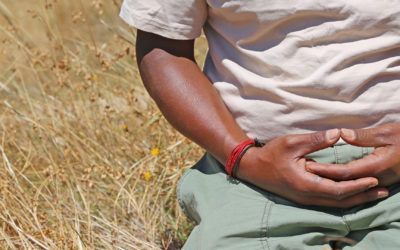
Living Mindfully in Modern Society
Every morning I awaken torn between the desire to save the world and the inclination to savor it.— E.B. White Spiritual life may initially be focused on self-transformation, but as mindfulness and compassion grow we naturally become attentive to the values of the...

Freedom Amid Challenging Times
Every generation or so, modern society is rocked by upheavals, whether by assassinations, war, political turmoil, or powerful economic and environmental challenges. In uncertain times the political climate can worsen these fears. Early twentieth-century journalist and...

Fearing Death
If you understand—things are just as they are. If you do not understand—things are just as they are. —Zen saying From the universal perspective, all things that are born eventually die. Death comes to our best friends and family members, sometimes even to young...

Making Friends with Fear
Little fears cause anxiety, and big fears cause panic.— Chuang Tzu Although most of us have been deeply conditioned by fear, for the most part we have avoided directly exploring its nature. Because we are not aware of its workings, it is often an unconscious driving...
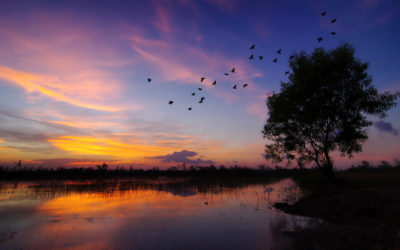
Stop the War Within
We human beings are constantly in combat, at war to escape the fact of being so limited, limited by so many circumstances we cannot control. But instead of escaping, we continue to create suffering, waging war with good, waging war with evil, waging war with what is...

Happiness and Tranquillity
In our busy world, we tend to overlook the capacity we have to allow the mind to settle down and rest, to become deeply silent and peaceful. This stillness is a great power in meditation, and through it we can learn to listen more fully to the world around us and to...

Good Politics
A highlight of a recent teaching trip Trudy and I took to France and England was working with members of the British Parliament. After observing working sessions in the House of Commons and the House of Lords, Trudy and I met with a number of members of the 85-strong...
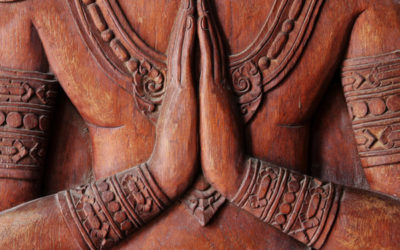
The Practice of Forgiveness
Buddhist psychology offers specific teachings and practices for the development of forgiveness. Like the practice of compassion, forgiveness does not ignore the truth of our suffering. Forgiveness is not weak. It demands courage and integrity. Yet only forgiveness...

Wise Society
Trudy and I have had the privilege of staying at Montagne-Alternative, a visionary community high in the Swiss Alps. The community has rebuilt an ancient and semi-deserted Swiss mountain village to create an elegant center for groups to learn integrated and healthy...

Learning from Doubt
When we learn about doubt in meditation, we can then learn to face doubt wisely in our life. Here’s how to start: begin by looking at doubt carefully and with detachment. Have we ever really observed the voice that says, ‘‘I can’t do it. It’s too hard. It’s the wrong...

The Colorings of Consciousness
Consciousness is colored by the states that visit it.—Buddha "Eh," my teacher Ajahn Chah would peer at me when I was having a hard time, “caught in some state again?” In the forest monastery we were constantly being directed both to look at consciousness itself and to...
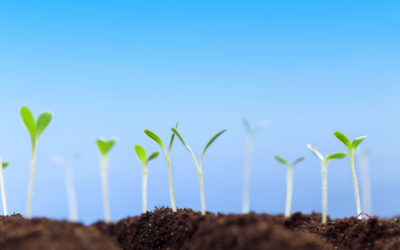
Parenting As Practice
Parenting is a labor love. It's a path of service and surrender and, like the practice of a Buddha or bodhisattva, it demands patience and understanding and tremendous sacrifice. It is also a way to reconnect with the mystery of life and to reconnect with ourselves....

Freedom from Repetitive Thoughts
There are a few basic principles for learning how to release the contractions and stuck places we encounter in meditation. One of the most helpful of these principles is called Expanding the Field of Attention. A repeated difficulty will be predominantly felt in one...
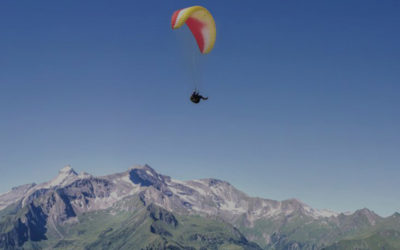
Human Flourishing
How can we foster peace and understanding, compassion and well-being for humans and for all beings? We know this is possible individually. In our practice and teaching of mindfulness, loving-kindness, compassion, forgiveness and other trainings of the heart, we have...
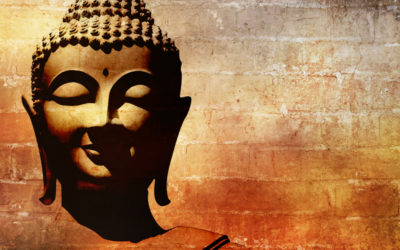
Love Says We Are Everything
When we first hear them, the Buddhist teachings of non-self can arouse confusion or even fear. We might fear that non-self means the loss of our self, as if we were going to die. But the psychology of non-self is quite different. In practice, we don’t have to change...

The Tyranny of Perfection
Imperfections are part of the display of life. Joy and sorrow, birth and death are the dance of existence throughout which our awakened consciousness can shine. Yet we long for perfection. The perfect partner, house, job, boss, and spiritual teacher. And when we find...

Understanding Your Own Mind
In popular Western culture we are taught that the way to achieve happiness is to change our external environment to fit our wishes. But this strategy doesn’t work. In every life, pleasure and pain, gain and loss, praise and blame keep showing up, no matter how hard we...

The Trouble with Denial
Anger is easy to see, and greed is more subtle, but delusion is the hardest. All the accompanying mind states get cloudy, confusing. — Ajahn Chah Denial arises when we don’t believe what is actually in front of our eyes. On a personal level, we can deny problems at...

Abundance and Gratitude
Mistakenly, some people think that Buddhism condemns all desire. But there is no getting rid of desire. Instead, Buddhist psychology leads us from desire to abundance. The Indian sage Nisargadatta, one of my teachers, challenged his students, saying, “The problem...

Dharma & Politics
Many Buddhist practitioners have questioned what to do in these turbulent times. More than anything, I believe the world is in need of a spiritual perspective. The Dharma teachings of generosity, virtue, loving-kindness, and wisdom are non-partisan. The benefits of...
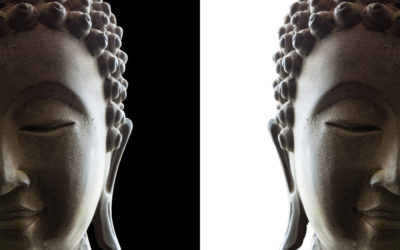
Steady the Mind
Who is your enemy? Mind is your enemy. No one can harm you more than a mind untrained. Who is your friend? Mind is your friend. Nothing can help you more that a trained mind, not even your loving parents. —Buddha What do we see when we look at our mind? Constant...

Awakening Love
The Buddha taught that we can develop loving-kindness by visualizing how a caring mother holds her beloved child. Love is our true nature, but it is often covered over by a protective layer of fear. The Buddhist path uses systematic trainings to cultivate love. These...

Gratitude and Wonder
If we cannot be happy in spite of our difficulties, what good is our spiritual practice? —Maha Ghosananda Gratitude is a gracious acknowledgment of all that sustains us, a bow to our blessings, great and small. Buddhist monks begin each day with chants of gratitude...

Healing The Mind
The mind creates the abyss, and the heart crosses it.—Sri Nisargadatta When we carefully observe our thoughts, we discover that they are not in our control—we swim in an uninvited constant stream of memories, plans, expectations, judgments, regrets. Observing the...

Did I Love Well?
Even the most exalted states and the most exceptional spiritual accomplishments are unimportant if we cannot be happy in the most basic and ordinary ways, if we cannot touch one another and the life we have been given with our hearts. In undertaking a spiritual...

Inattention and Delusion
Buddhist psychology describes the way delusion operates in our lives. One form of delusion is a lack of attention. Without attention, it is as if the Wicked Witch of the West has sown our hometown with poppies and we don’t notice where we are. We could call this...

Fear and Anger
Aversion, anger, and hatred are states of mind that strike against experience, pushing it away, rejecting what is presented in the moment. They do not come from without. This insight is a reversal of the ordinary way we perceive life. “Usually,” says Ajahn Chah, “we...
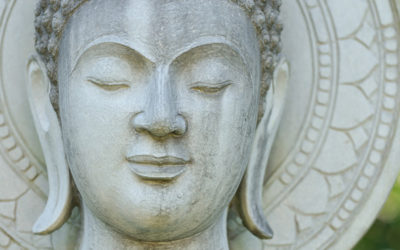
Do Not Despair
The problem with the world is that we draw our family circle too small.—Mother Teresa Many of us wrestle with our response to the sufferings of the country and the world. What can we do in the face of poverty, disease, war, injustice, and environmental devastation?...

Protecting the Vulnerable
"As long as a society holds regular and frequent assemblies, meeting in harmony and mutual respect, can they be expected to prosper and not decline. As long as a society follows the long held traditions of wisdom, and honors its elders, can they be expected to prosper...
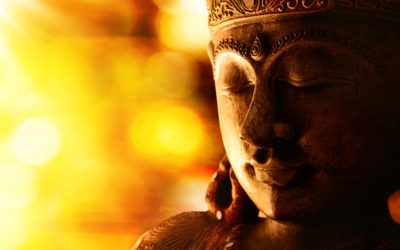
Let Go of Unhealthy Thoughts
Whatever a person frequently thinks and reflects on, that will become the inclination of their mind. —Buddha Speak and act from unwise thoughts, and sorrow will follow you as surely as the wheel follows the ox who draws the cart. Speak and act from wise thoughts and...

Freedom to Make Mistakes
Gandhi said, “Freedom is not worth having if it does not include the freedom to make mistakes.” Don’t be afraid of making mistakes. Step out. Fly. Even if you get burned, you can fall back to earth and start again. Zen Master Dogen laughingly called life “one...

Love: The Gateway to Freedom
No matter where we are, we can see the world through the eyes of love. Without love, everything is constrained, if not false. With love, we stand in the presence of all of life’s mysteries. We can hold a golden apricot, a worn baseball glove, a photo of a child, or...
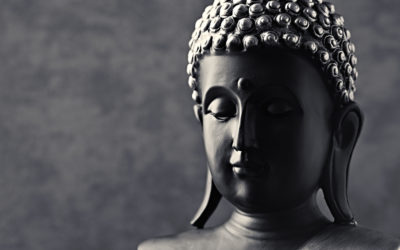
Why We Suffer
Like the mother of the world who carries the pain of the world in her heart, you are sharing in the totality of this pain and are called upon to meet it in compassion and joy instead of self-pity.—Sufi master Pir Vilayat Khan Alan Wallace, a leading Western teacher...

Healing the Heart
Just as we open and heal the body by sensing its rhythms and touching it with a deep and kind attention, so we can open and heal other dimensions of our being. The heart and the feelings go through a similar process of healing through the offering of our attention to...
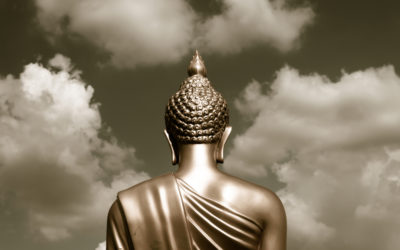
Speak the Truth and Stand Up for Justice
The opposite of aggression is not passivity, it is true strength. When we have lost a sense of our innate nobility,we mistakenly believe in our fear and weakness. We try to be strong through hate and aggression. When we release aggression, we discover true strength, a...

From Self-Hate to Compassion
In 1989, at one of the first international Buddhist teacher meetings, we Western teachers brought up the enormous problem of unworthiness and self-criticism, shame and self-hatred, and how frequently they arose in Western students’ practice. The Asian teachers were...
















